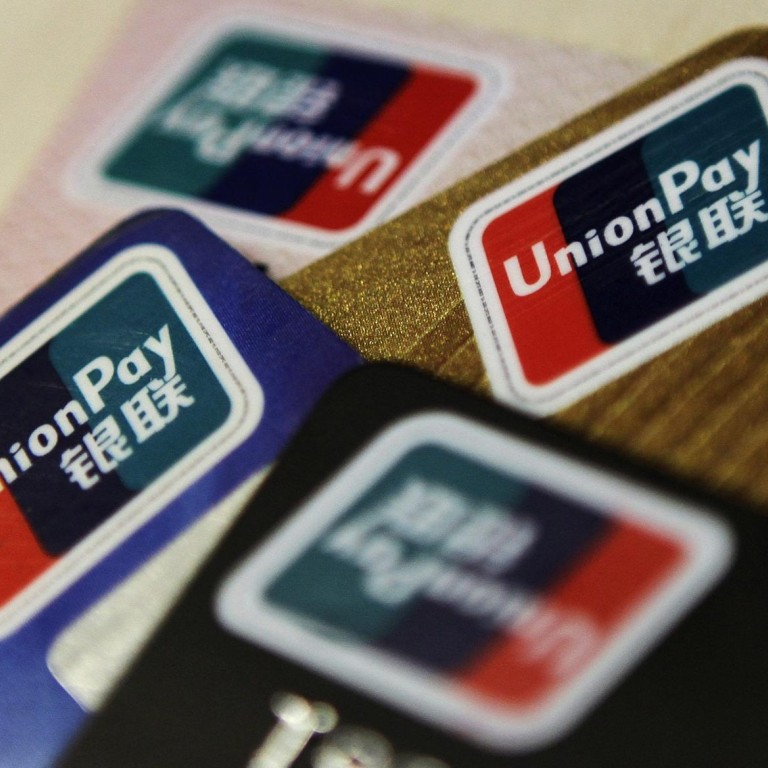
State-run banks implicated in multibillion-dollar cash-for-gambling racket in Macau
Documents detailing how UnionPay is used in Macau casinos to evade currency controls raise questions about the involvement of large banks
A multibillion-dollar cash-for-gambling racket in Macau casinos that subverts China's strict currency controls is being run by a sophisticated cross-border syndicate within the state-run banking system.

Last month, the reported that China UnionPay was investigating the problem of handheld swipe-card devices being used in Macau to provide cardholders with access to cash for gambling. The racket has alarmed Beijing and hit casino stocks.
The sources say lax due diligence checks have seen these cross-border payments accepted into accounts of at least two state-run banks with operations in the former Portuguese enclave.
"Such an apparently elaborate scheme to circumvent China's forex regulations and thereby undermine the country's financial security must be alarming to Beijing," said a political analyst based in Macau. "I would guess the casinos are doing everything they can to stamp this out. But it would require a lot more than frontline security. There must be someone looking into how this is happening on the back end, too."
The transactions involve three legal breaches: the use of handheld payment devices registered on the mainland for transactions in Macau; the illegitimate clearance of transactions outside Macau by a mainland third party payment company; and the acceptance of funds from the mainland from transactions conducted via these mobile devices by Macau branches of state-run banks.
The two biggest state-run banks in Macau - ICBC and Bank of China - denied any involvement in the racket.
Bank receipts seen by the detail payments made with UnionPay cards swiped on handheld devices credited to the state-run bank accounts of shops in Macau.
China's foreign exchange regulations place limits on the transfer of cash to Macau, but casino activity shows bets far exceeding exchange limits, according to a report by FTI Consulting.
UnionPay and the Monetary Authority of Macau declined to comment.


